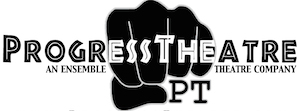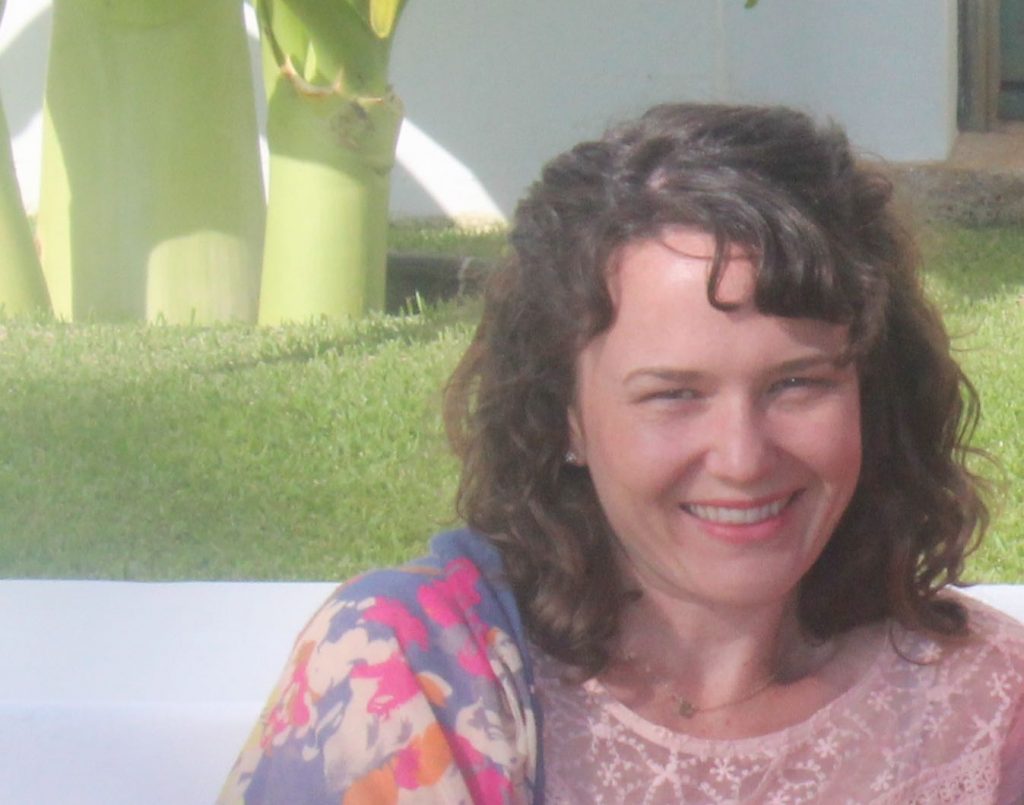For each tour city where Progress Theatre travels to perform, one of our ensemble members uses this blog to reflect on new insights, discoveries, questions and conversations we encounter as we engage with audiences and communities across the country. We share this “Ensemble Blog” as another way of following the tour, continuing the post-show dialogues often started with our audiences, and mapping our journeys “in progress”–literally and figuratively.
In late February, Progress Theatre (PT) kicked off 2015 with our first residency of The Burnin’ at the University of South Florida in Tampa hosted in part by Art2Action. We had the honor of performing on Saturday February 21st, the 50th anniversary of Malcolm X’s assassination. While moderating the post-show talkback, Andrea Assaf asked us what it meant to perform on such a monumental day. It really got me thinking about how to put into words the journey that I have been on for the last year and half, and how being an ensemble member of PT has challenged me to not only be a better artist but to be more socially involved/aware as a whole. Progress Theatre is named after a Malcolm X quote that puts into focus for me, everyday, what this work is all about. The quote reads, “If you stick a knife into my back and pull it out six inches, that’s not progress. Even if you pull it all the way out, that is not progress. Progress is healing the wound that the blow made. And they haven’t even pulled the knife out much less heal the wound. They won’t even admit the knife is there.” My relationship with Malcolm X and Progress Theatre has been a journey of self-examination and transformation.
I was introduced to Dr. Cristal Chanelle Truscott’s work by divine intervention, I am sure of it. My best friend had been contacted with a breakdown for The Burnin’, but since she was no longer living in Houston, she passed it on to me. I’m forever grateful that she did. The breakdown among other things called for, “a talented, fearless white female actor to join the company. The actor should have an adventurous spirit…The play takes on race, humanity, and memory in a hauntingly beautiful way.” I was intrigued to say the least, so I sent in my resume for consideration. I remember so vividly watching a pitch video of Cristal talking about the project and showing clips that illustrated Progress Theatre’s aesthetic. It gave me chills and I thought, “This is it!” Thus began my awakening.
In The Burnin’, I play two different characters. May Belle is the 1940s antebellum “princess” who is the descendant of old plantation money in the Deep South. She is in love with the privilege, ceremony, and beauty of antebellum southern life and decidedly or naively blind to the oppressive circumstances that serve her way of life. On the flip side is Broadcast, a hip spoken-word artist covering the club/arts scene of a present-day urban city. She begins in a place of semi-self-righteous and affirmed post-racial mentality. She journeys toward a reevaluated/new consciousness of identity and reclamation of shared histories and lives. Dealing with both characters made me confront my past in very different ways.
It was extremely difficult for me to connect with May Belle at first. I didn’t grow up as she did, with a so-called “Mammy” so I couldn’t figure out how someone could supposedly love someone so much and yet treat them like a toy to be played with and thrown astray at a moment’s notice. On the surface it seemed she and I had nothing in common. I was not prepared for the discoveries that were to come. It hit me like a ton of bricks every time someone in the ensemble shared a story about either their own personal encounters with racism or the history of the time and I was the only one in the room who was shocked. Privilege had allowed me to keep my rose-colored glasses on much longer in life than the rest of the ensemble, and the lenses were starting to lose their hue. In Tim Wise’s White Like Me, he talks about how he traced his family lineage back generations in order to really understand his own privilege. This was a revelation to me so I started doing some digging of my own.
Growing up, I knew that there were strong ties to Texas but I had no idea that my ancestors fought in the Civil War, and clearly not on the side of the Union. I also found out we had a big plot of land in East Texas that the family likes to call the “cotton farm,” but it was obviously a plantation that held enslaved people. Here I was thinking I was so different from May Belle and yet I was one of her many descendants. That was a hard pill to swallow. Then there was figuring out who Broadcast was. The first one-on-one rehearsal I had with Cristal about Broadcast was an emotional one. Tears of anger, guilt, and embarrassment ran down my cheeks. I recounted stories from childhood and college about not understanding how I had contributed to and reaped the benefits of a society that systematically oppresses. It’s one thing to know you are a descendant of this great tragedy. It’s a whole other ball of wax to learn you yourself are inherently part of the problem.
The ensemble space created a safe learning environment where I began to make my own journey toward a re-evaluated/new consciousness of identity and shared history. I started to read anything I could get my hands on. The more I read and the more we discussed and developed The Burnin’, the angrier I became about the unavoidable lies privilege had concocted. How was it possible to go 27 years without knowing who James Baldwin, Stokely Carmichael, and Medger Evers were? Without reading Maya Angelou, bell hooks, Angela Davis, Richard Wright, Harriet Jacobs, Mumia Abu Jamal, Isabel Wilkerson, and Malcolm X among so many others? Enough time had been wasted and I didn’t intend to lose any more. The way I saw it, I had four of the best teachers within my ensemble — Cristal, Carlton Turner, Tiana Kaye Johnson, Derrick Brent II — and I was going to take full advantage.
I started to re-teach myself my own personal history and the truth about this country. In turn, I was faced with acknowledging that some loved ones were not as progressive as I had once thought. Part of acknowledging my own privilege meant recognizing it in my family and friends and calling attention to the situation. Needless to say that wasn’t something everyone took to all that well. While some showed a willingness to reevaluate their own role in the continual colonization of society, others were either annoyed, silent, irate, or made me the butt of their jokes when I had the audacity to say something.
When I finally read The Autobiography of Malcolm X, I was blown away. Talk about transformation. He was constantly on a journey of self-evaluation and growth. He wasn’t too proud to admit when he was wrong but was always strong enough to stand
up to injustice no matter the consequences. We all have so much to learn from this powerful man but what I take away from him as a teacher is that it’s never too late to make a difference. If Malcolm X’s high school teacher had encouraged him to become a lawyer when he had expressed interest in the profession, I’m sure he would have shown great command over the courtroom. But would he have become the Malcolm X we revere and love? Possibly not.
I may have spent the last 27 years in varying degrees of denial which is beyond frustrating, but I realize that my past has made me exactly who I am at this moment and because of that I can’t dwell on opportunities missed. Instead, I have the opportunity to finally acknowledge the knife so that I can begin to play my part in the important process of healing. Working with Progress Theatre has taught me many invaluable lessons, urgency being among the most important. One of the many nasty by-products of privilege is apathy and complacency. Sure it would be the easy and more comfortable choice to fall back into the status quo, refusing to challenge injustice or White privilege. But, blame and guilt are such easy options. In the words of Broadcast, “Blame will do no good. And, there’s no time for guilt. The building is burning. We need all hands on deck to put out the fire. So, if you think this has nothing to do with you, I am here to tell you that fire spreads, people. It spreads.”
Read the entire blog article on the Alternate Roots website.

